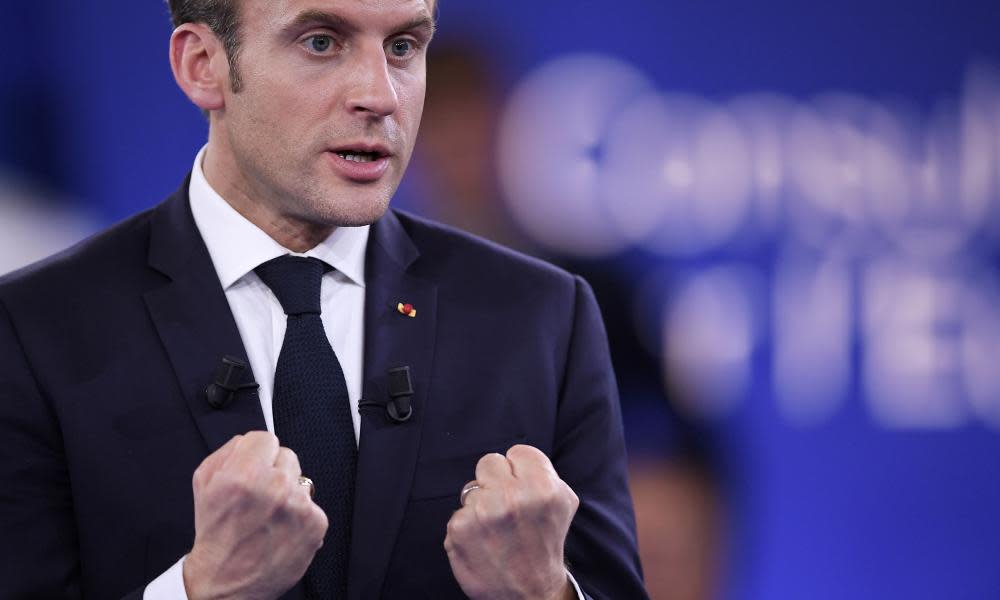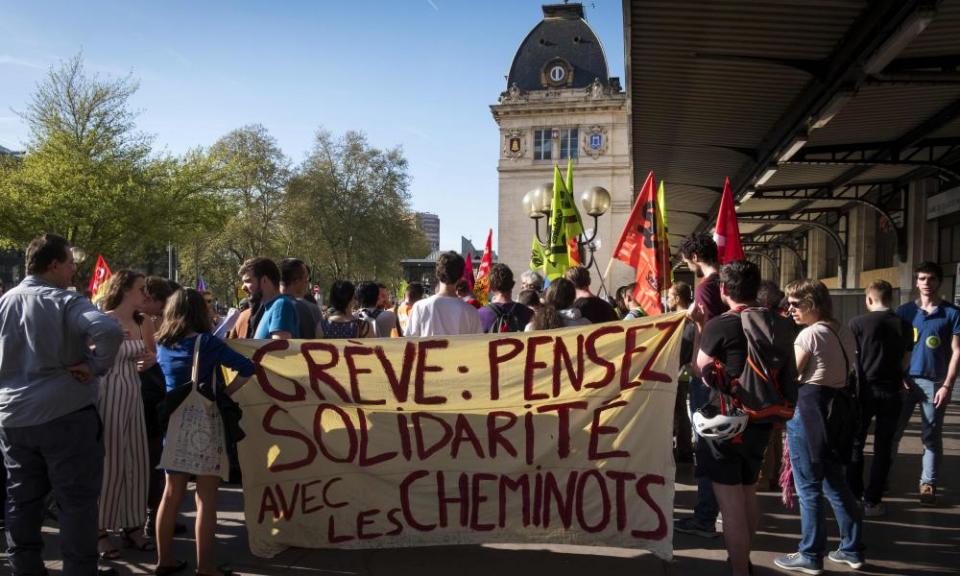Macron gets backing from parliament in tussle with rail unions

France’s striking rail unions face a test of their popular support after Emmanuel Macron’s bill to reform the country’s debt-ridden state rail operator sailed through parliament and a poll showed a majority of the public backed his plans.
One in three high-speed TGV trains and one in four inter-city services were running on Wednesday as striking workers disrupted services for a seventh day this month in protest at plans to phase out the SNCF’s passenger rail monopoly and end jobs for life and early retirement guarantees for new staff.
Macron, elected president last year on a sweeping programme of pro-business economic and social reforms aimed at liberalising France’s economy, has insisted he will not back down, and won a convincing victory in the lower house on Tuesday night when his SNCF reform bill was passed by 454 votes to 80.
“Unions are free to do as they see fit, but a majority of the French want this reform,” the labour minister, Muriel Pénicaud, told French television. “Democracy is calling on the unions to find a solution that moves things forwards, not backwards.”
Public sector workers, care home staff and students have been urged to take to the streets on Thursday as trade unions seek to build a broad-based movement of resistance to the government’s plans.

Students angry at changes allowing universities to select undergraduates, which they argue breach France’s principle of free education for all, occupied the elite Sciences Po university in Paris – once attended by Macron – in the latest of a series of sit-ins, including at the Sorbonne.
The militant CGT union has also called for strike action on the Paris Métro, with the head of its energy branch, Sébastien Menesplier, saying his members could consider targeted power cuts, causing more disruption.
But unlike in 1995, when rail workers spearheaded a mass public-sector walkout that eventually forced the centre-right government of Alain Juppé, the then prime minister, to call off its reform plans, the rolling programme of rail strikes – two days out of every five – has not yet secured majority public backing.
As anger among rail passengers mounted, a survey published on Wednesday by pollster Ifop found 61% of the public wanted the government to push ahead and implement its planned reforms. Around 32% of rail workers walked out for Wednesday’s strike, compared with 48% on the campaign’s first day two weeks ago.
Ifop’s deputy general manager, Frédéric Dabi, said public support for the protesters was “relatively low: this is seen as one of the least legitimate strikes we have worked on over the past 20 years.” While the unions’ campaign was not yet lost, Dabi told Le Monde, there seemed at present to be “implicit public support, beyond his political base, for Macron’s reforms”.

 Yahoo News
Yahoo News 